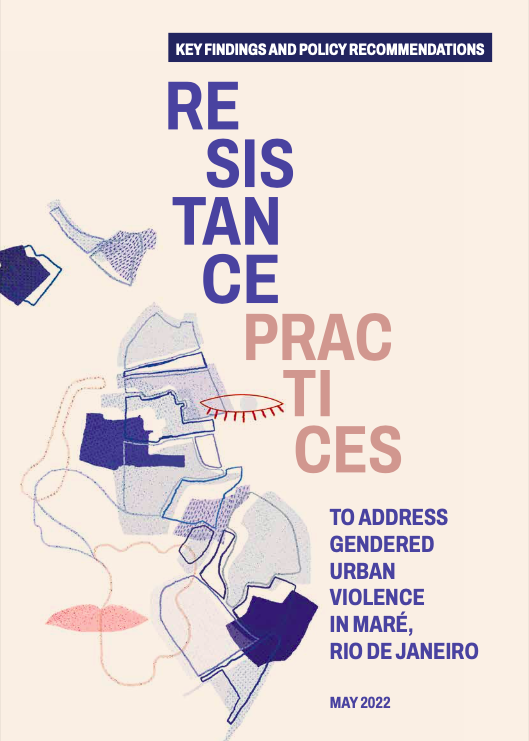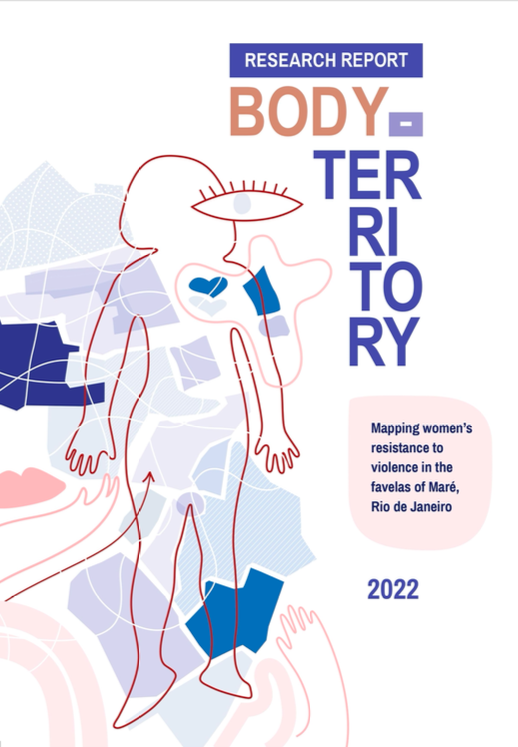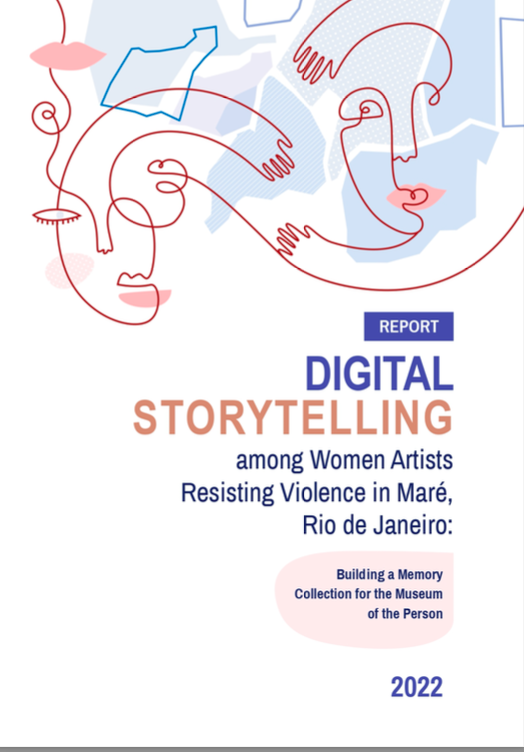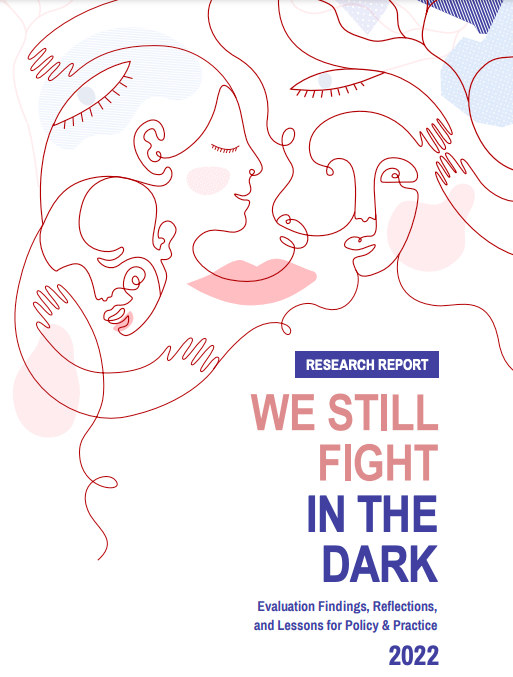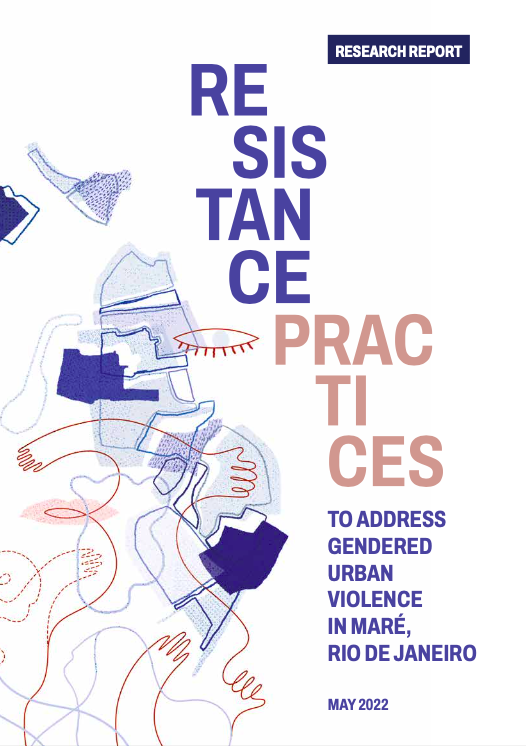
Resistance practices to address gendered violence in Maré, Rio de Janeiro.
This report presents key findings of research conducted as part of the ‘Resisting violence, creating dignity: negotiating Violence Against Women and Girls (VAWG) through community history-making in Rio de Janeiro.
Read the Report: Dignity and Resistance
The below summary examines the construction of coping and resistance practices by women in relation to gendered urban violence in Maré, one of the largest groups of favelas in Brazil, located in the North Zone of Rio de Janeiro. The territory is affected by high levels of poverty, inequality, organised crime and public insecurity, yet is also home to multiple struggles, protest and resistance as well as a large network of civil society initiatives and organisations.
Coproduced between the teams in Brazil and the UK, the body mapping focused on women’s bodies as territories and on their collective knowledge about the spaces they inhabit. As an instrument for the vindication of knowledge and narratives by women facing various forms of gendered urban violence, the counter-mapping makes visible and enhances collective knowledge produced through territorial and embodied resistance practices.
The research is led by King’s College London (Department of Geography) and Redes da Maré in partnership with the Federal University of Rio de Janeiro (UFRJ), People’s Palace Projects, Queen Mary University of London and Museum of the Person and is supported by the British Academy via the GCRF – Global Challenges Research Fund.
Read the Digital Storytelling Report
We Still Fight in the Dark.
Published in May 2022.
